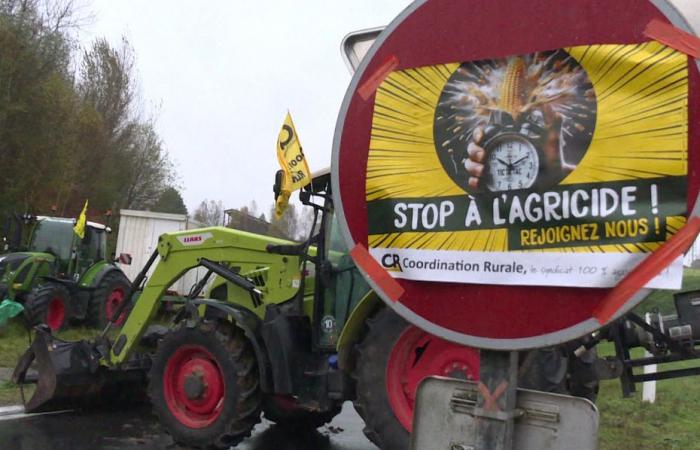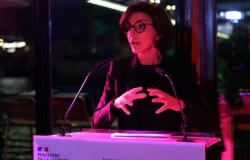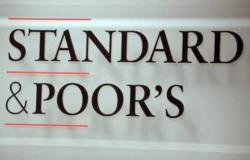From January 15 to 31, 2025, professional elections will take place in the 103 agricultural chambers of France. The current agricultural crisis, a sounding board for agricultural anger, also serves as a means for unions to assert themselves. The challenge in Limousin is to know whether rural coordination will continue to progress.
The essentials of the day: our exclusive selection
Every day, our editorial team reserves the best regional news for you. A selection just for you, to stay in touch with your regions.
France Télévisions uses your email address to send you the newsletter “Today’s essentials: our exclusive selection”. You can unsubscribe at any time via the link at the bottom of this newsletter. Our privacy policy
Recent news in Creuse has been marked by the very muscular action of the Rural Coordination. Union supporters forced the door of the MSA and, above all, broke down the door of the office of the French Biodiversity Office.
With 67% of the votes in the last elections, the FDSEA, in charge of the Creuse Chamber of Agriculture since the post-war period, could anticipate a fairly comfortable re-election. However, in Creuse, as everywhere in France, the Rural Coordination (12.19% in 2019) could carve out croupiers for it.
“What we would like is for farmers to mobilize. Participation was not at all up to par six years ago. After the Coordination, they do it before each election. They show their muscles , they say they are going to change everything and afterward, it's the policy of the empty chair, criticism without proposals But we are wary, the last elections in the department held a lot of surprises. believes Christian Arvis, boss of the FDSEA. As part of continuity, the union wants to focus its action on remuneration.
The current Rural Coordination team has been at the helm of the union since 2019. Florian Tournade, the president, had previously launched the collective of farmers in distress with others. Disappointed by the management of the majority union, they relaunched the CR in the department.
“We ended up with the philosophy of the CR which leaves great freedom to undertake. At the head of the union, they are farmers, not agro-industrialists like Arnaud Rousseau. Locally, we found the FDSEA too sectarian, representing only friends.” The radical nature of the actions is assumed, even if the manager continues to deny the theft of documents from the OFB headquarters. Often associated with the RN at the national level, the CR of Creuse contests any proximity with the extreme right. It wants to focus its action on access to water, administrative simplification and above all on the fact of “Leave us alone. There is room for all productions.”
The list of the peasant confederation is already ready. Present in the department for more than 30 years, she came third six years ago.
“We want to focus our campaign on income and the rejection of all free trade agreements, not just Mercosur. It is these agreements that prevent the implementation of floor prices and the enforcement of the Egalim law. We want to defend the 'access to land to settle young people and not firms dependent on agri-food industries' explains Olivier Thouret, spokesperson for the union.
In Creuse, there will also be a MODEF list (Movement for the defense and coordination of family farms). Created in 1959, this historically rather left-leaning union has been present in Creuse since the 1970s and represented in the chamber since the 1980s. “We demand the application of floor prices, the regulation of margins and the minimum wage guaranteed to young farmers during the first five years of installation. We favor the traditional, extensive agricultural model, with healthy products” argues Pierre Couret, president of MODEF 23.
All reject MERCOSUR.
The results in Creuse in 2019: FDSEA/JA: 67.2%, Peasant Confederation: 12.19%, Rural Coordination 10.48% and MODEF: 10.20%. Participation rate: 44%.
It was a surprise six years ago. Rural Coordination won a historic victory over the FDSEA in Haute-Vienne, making the department one of only three administered by this union at the national level (with Vienne and Lot-et-Garonne). A result illustrating the slow progression of this union which only totaled 12% of the votes in 1995 at the national level and collected 21% in 2019.
A mandate marked by shocking actions. For example, the release of wild animals into the Lido cinema in Limoges to protest against the screening of a documentary and a debate on basins. The latest action to date, the Rural Coordination dumped tires and manure in front of MP Delautrette's office on the night of November 24 to 25 to denounce its support for animalist associations like L214.
“We play on the balance of power and virulent actions. We are criticized for this, but nonetheless, we obtain things. And we do not deny ourselves. We do not discuss with the OFB unlike the FDSEA, because we do not Don't talk to those who want us dead.” high verb and meaning of the formula, Bertrand Venteau founder of Rural Coordination in 2012 in Haute-Vienne and president of the chamber since 2019 praises his record.
“In six years, we have rectified the chamber's accounts which were in a catastrophic state. We have brought out of the ground 700 photovoltaic buildings, 80 hydraulic structures for irrigation, facilitated methanization projects”. He also rejects the label of compatibility with the RN, attached to the union. “The FDSEA says that to call us fascists, but 70% of our members are not registered and the remaining 30% are in lots of different parties.”
Since 2019, Boris Bulan, the president of FDSEA 87, has only one idea in mind: to take over the chamber that his union has run since the post-war period. Since the start of the mobilization in November, the FDSEA has been rather active. Latest action to date this Tuesday, November 26 with a very cordial meeting in the offices of the OFB and the DDT. The union wants to display its dialogue with the authorities in contrast to the more muscular actions of the Rural Coordination. Last week, the latter spread agricultural effluent copiously in front of the prefecture.
“We are at work. We are trying to obtain simplifications. We are explaining to the OFB that it is no longer possible for farmers to be afraid as soon as a stream has to be drained or an oak tree cut down” . The results of the CR's action since 2019 are highlighted: “The chamber has been very involved in helping with files for six years, but is no longer involved in technical or agronomic matters. A visit should be made once a year to each farm. The health assessment with the cessation of screening The systematics have not been good either. And we have to hunt a lot more wild boars. We hunted 6,000 when we were in charge, we kill 6,700 today.
Observation shared by the Peasant Confederation.
“Due to its radicalism, the current team has a tendency to target its interlocutors. We must calm things down, find a respectful dialogue even when we do not agree” argues Philippe Babaudou, co-spokesperson.
The union has been present in Haute-Vienne since 1987 (date of creation of the conf). In 2001, in the context of mad cow disease and the notoriety of José Bové, the confederation came within 50 votes of winning in the department.
Today, its priority is to stem the dramatic decline in the number of farmers, nearly 800,000 in 30 years. “We are at a tipping point. Either we start with the model favored by the FDSEA with ever-larger farms managed by agro-industrial firms, as the Peyrilhac 3,000 calf farm project suggests, or we try to preserve agriculture on a human scale.”
The results in Haute-Vienne in 2019: Rural coordination: 47.94%, FDSEA: 35.92%, Peasant Confederation: 16.14%. Participation 30%.
In Corrèze, as in Creuse, the FDSEA has been in charge of the chamber since the post-war period.
Not necessarily a good thing for Jonathan Auzou of the Confédération Paysanne. “We went from 7,000 to 3,600 farmers in the department. This is not going to get better with the support of the historic union for the installations of photovoltaic fields to the detriment of agricultural land. So the management results of the FDSEA are catastrophic We agree with the rural coordination on the denunciation of free trade agreements, however, we agree a little less well with them on the method.
The union wants to take up the cause of solidarity contributors, farmers in the process of being established who do not have the right to vote either for the MSA or in elections to the chamber.
Seriousness and work, this is what the FDSEA wants to highlight through the voice of its manager Emmanuel Lissajoux. “It's good to create a buzz and show yourself three months before the elections, but in the disaster commissions for example we are all alone working, look at the minutes! At the regional level, we went for the 30% increase for the building plan, we didn't just invade the regional council for two hours with a yellow cap on our heads.”
The yellow caps are obviously those of the members of the Rural Coordination which in Corrèze could also increase its score under the direction of Amélie Rebière, local president and national vice-president.
“The room in Corrèze seems viable to us. Memberships have increased fivefold since the start of the year and the mobilization last winter. We are making progress especially among young people who are not coping and can clearly see that the 'we can't continue like this' confirms the president. The establishment of the union in the department is quite recent, it has only been representative since the last elections in 2019.
“If we are elected, we will put the chamber at the service of all farmers in the department and not just friends. We also want to improve communication. For the moment we are not aware of anything.” The first measure of Rural Coordination would be to take stock of the activity of Foncière agricole, the Chamber of Agriculture company created to “carry out the land, and only the land, of the Corrèze photovoltaic parks with local stakeholders and launch calls for tenders from investors”. A society contested by the three unions CR, MODEF and Confédération paysanne which denounce the grabbing of agricultural land for photovoltaics to the detriment of installations.
duration of video: 00h01mn31s
Blockade in Donzenac and war of agricultural unions in Corrèze in anticipation of elections to the Chamber of Agriculture
•
©France Télévisions
The results in Corrèze in 2019: FDSE/JA: 46.45%, Rural Coordination: 25.02%, Peasant Confederation: 16.14%, MODEF: 12.39%. Participation 52.81%.
The FNSEA, created after the Second World War, was the only union for a long time until the creation of MODEF in 1959. It has 212,000 members and controls almost all of the chambers (except three). Privileged interlocutor of the public authorities, it is accused of co-managing agricultural policies with successive governments. The union advocates productivist, mechanized and intensive agriculture, competitive internationally. Against Mercosur in 2024, she has not always been against free trade agreements.
Created in 1959 following dissidence within the FDSEA, the MODEF was for a long time the only other union. Close to the socialist and communist left, Modef positions itself as a defender of the model of small and medium-sized family farms. He opposes land concentration, speculation and globalized competition.
The Confédération paysanne was created in 1987, resulting from currents within the FDSEA which is rather classified on the left. She advocates agriculture that is more respectful of the environment, less productivist, and is resolutely against free trade agreements.
Rural Coordination was born in 1995, founded by three farmers from Gers after the milk crisis and the CAP reform of 1992. Generally located on the right, even on the extreme right. It opposes free trade treaties as well as standards and regulations, particularly ecological ones.






